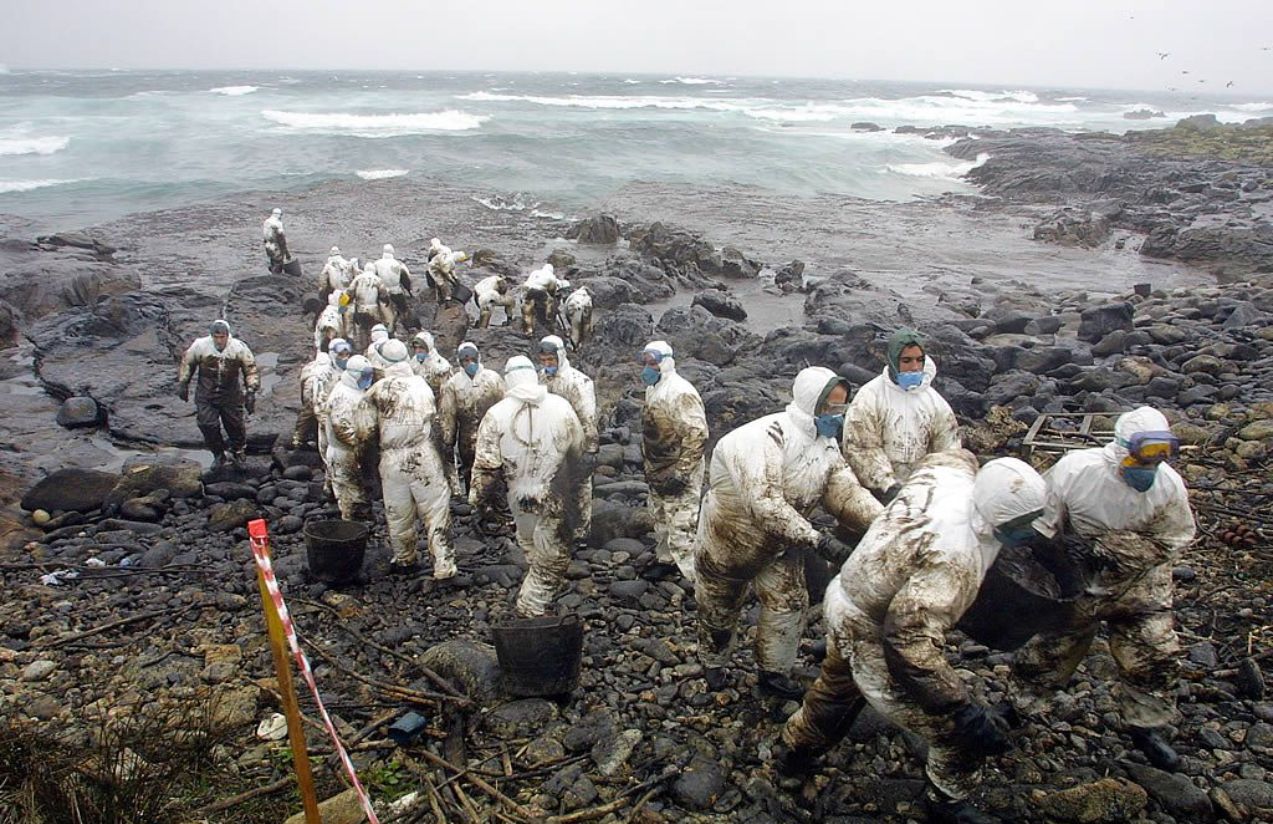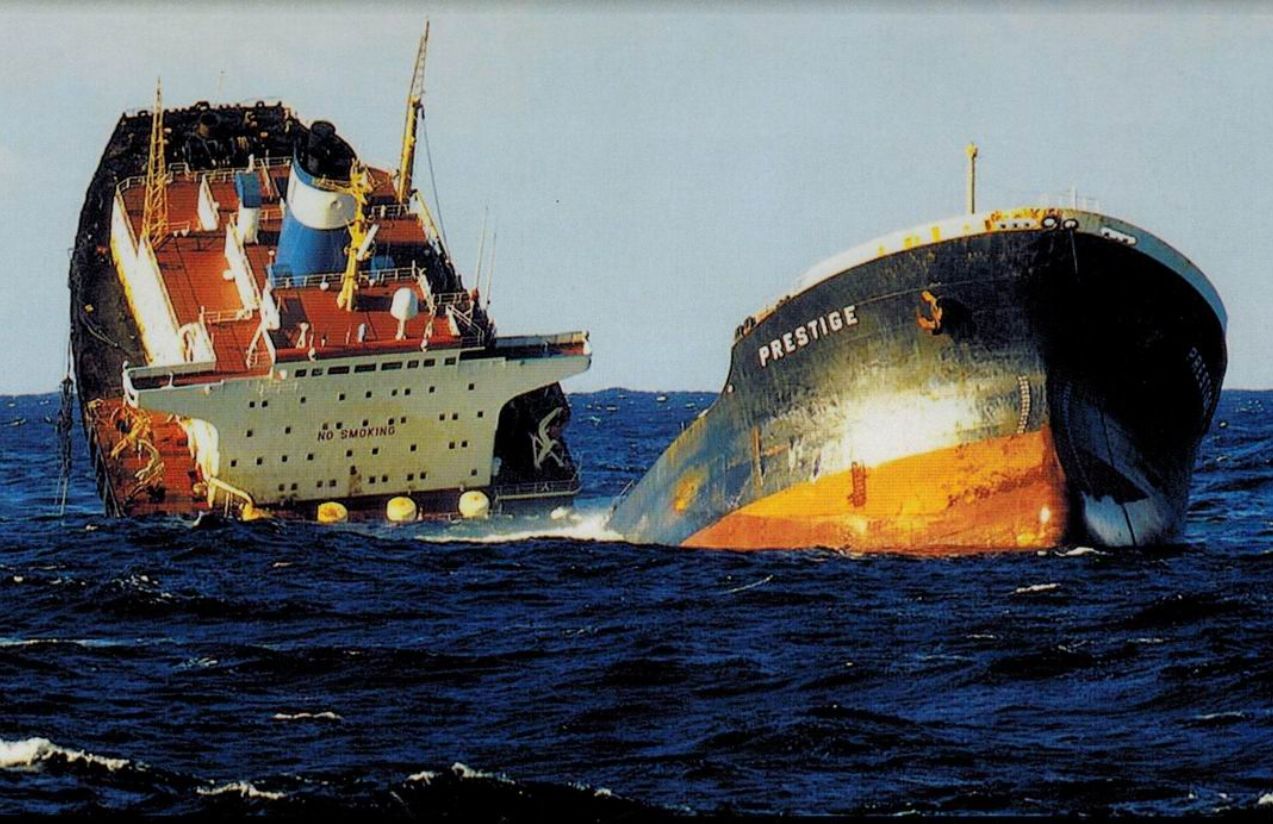In November 2002, the oil tanker Prestige split in two off the coast of Galicia, triggering one of the greatest environmental disasters in maritime history. The vessel was carrying about 77,000 tons of heavy fuel, of which approximately 63,000 tons ended up spilled into the sea.
The resulting oil slick stained more than one thousand beaches along nearly 3,000 kilometers of coastline, from northern Portugal to France, causing a deadly wave of ecological damage.
Read More

Hundreds of thousands of birds died covered in oil, and many others could not be rescued. On land, the citizen movement “Nunca Máis” was born, demanding greater political accountability after the crisis was poorly managed.
Twenty years after the tragedy, the wreck of the Prestige still rests at the bottom of the ocean, and its legacy remains a reminder of the latent risks of transporting hydrocarbons.
Why does the sinking of the Prestige remain relevant today?
Because it not only resulted in a massive ecological catastrophe, but also transformed public awareness about the dangers of maritime oil transport and left a deep social imprint in Galicia and beyond.





















